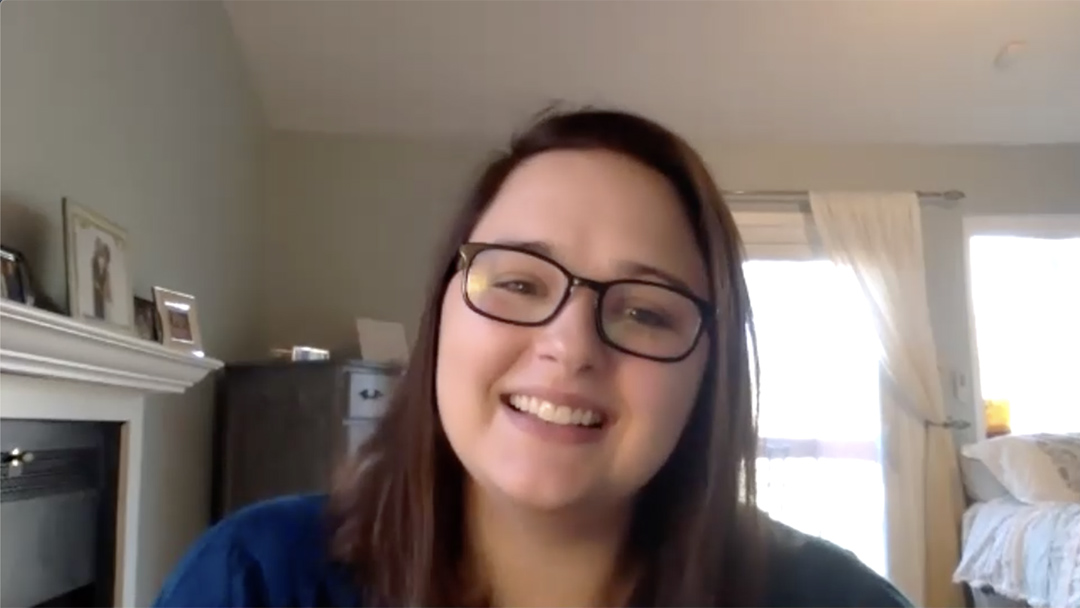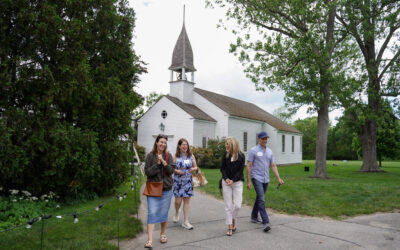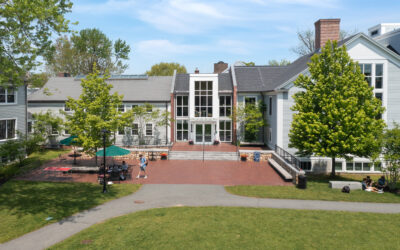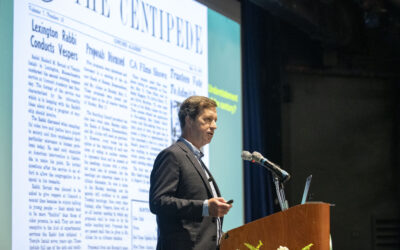
Caroline Griswold Short ’06 speaks with CA students via a Zoom call about her work with Generation Hope.
On December 11, hosted by CA’s Social Justice Club, Caroline Griswold Short ’06 spoke with around 30 community members as part of CA’s Lunch and Learn series, a new opportunity in the 2020–21 school year for Concord Academy alumnae/i to connect with current students and share their expertise. Short spoke about her work as the director of programing at Generation Hope, a Washington, D.C., nonprofit that helps teen parents earn college degrees while also helping prepare their children for kindergarten.
Generation Hope provides teen parents attending college not only funding for tuition assistance but also wraparound services such as mentorship from sponsors, emotional and mental health support, emergency funds, and career coaching and training. “The scholars are doing the work themselves,” Short said. “We’re just trying to make that journey a little easier.”
In her presentation, Short detailed the success of this holistic, two-generation approach to ending poverty. Nationally, less than 2 percent of women who have a baby by age 18 go on to earn a college degree by age 30 — an impact that stretches over generations. In contrast, Generation Hope scholars earn college degrees within six years at a rate nearly twice as high as all college students nationwide, regardless of circumstances, and at more than eight times the nationwide graduation rate for single mothers.
With four-year degrees, the scholars will go on to earn, on average, approximately $1 million more in their lifetimes than their peers without college degrees, altering their own prospects and their children’s. Generation Hope’s support for scholars costs roughly $6,000 per scholar per year. “The return on investment with a college degree is enormous,” Short said.
Since children of teen parents are more likely to do poorly in school and become teen parents themselves, Generation Hope began Next Generation Academy three years ago to provide case management for scholars’ whole families as well as parent support groups and classes and social-emotional and literacy skill development for children under age 5, to prepare them to do well as they begin formal schooling. “One generation can’t succeed unless the other does too,” Short said.
She shared a statistic that surprised her audience: Around 4 million college students are currently parenting; that’s 1 in 5 undergraduates nationwide. The scale of the need for support, and the evidence of the effectiveness of a two-generation approach makes it all the more surprising that Generation Hope — founded in 2010 by a woman who was once a teen mother herself, who beat the odds and went on to earn a graduate degree — is the only program in the U.S. with this particular focus.
CA students jumped in after the presentation with many perceptive comments and questions. For young people considering careers in social justice work, Short’s own journey was of particular interest. As a CA student, Short was president of the GSA, and she went on to volunteer for LBGTQ+ organizations. After graduating from Duke University, a double major in English and dance, she pursued professional ballet, but when injuries led her to reconsider her plans, she landed an internship at Generation Hope, back when the organization had only two employees.
“I hadn’t really ever thought about teen parenting as an issue that I cared about, but I realized that issues around racial equity, around gender, around domestic violence, educational access, all of this stuff, really tie in to this issue around teen pregnancy,” Short said.
When a position managing programs opened in 2013, she said, “I realized that I was happier doing this than I had been doing anything else, and I decided that this was what I wanted to do.”
Having been involved in the organization since its early days, Short now helps direct Generation Hope’s growing national outreach to colleges to aid them in providing technical assistance to teen parents, and is also looking ahead to increasing policy and advocacy work as the organization scales up.


